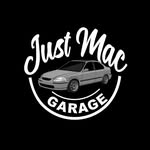- Home
- Bestsellers
- SpeedFactory Racing B-Series Mechanical Fuel Pump & Cam Trigger Combo Bracket

Finally a simple bolt-on solution that will easily allow anyone to run an efficient and cost-effective mechanical fuel pump - easily supplying you with all of the fuel volume you’ll ever need for your current or future power goals. For reference the Weldon 2345-A electric pump that almost everyone is currently running will run out of flow at about 800-900hp on methanol on a turbo car depending on other variables.
Our bracket fits both B16 & GSR cylinder heads and is constructed of CNC machined 6061-T6 billet aluminum with a durable and stylish black anodized finish with laser-etched SF logo. Full stainless steel hardware and a special cam gear hex bolt to drive the mechanical pump are included.
This is the exact same setup used on our mid 7 second 215+mph Outlaw Civic HB making 2000+hp on methanol.
If you want to make 800-1300hp on methanol or 1300-1700hp on ethanol based fuels than we recommend going down a pump size to the Waterman 500 Sprint Pump or Weldon 34704 (Identical pumps) which are rated at 4.8gpm @ 4000rpm (1300hp on methanol/2500hp on gas). Call us if you are unsure on a pump combo and we can help you!
The largest recommended pump option in the drop down menu above is rated at 6.8gpm at 4000rpm (1850hp on methanol/3600hp on gasoline) by the manufacturer.
Additional design features and notes:
• Integrated cam trigger sensor mounting provision
• The provision is there to run a dual pole hall sensor cam trigger but you don't have to use it. This means you can use this setup with an OEM ecu based EMS like Hondata/Neptune as all the needed sensors are in the distributor.
• Slotted rear mount allows it to be used on both B16 and GSR cylinder heads
• Cam gear side hex bolt drive eliminates any added torsional stress from being put through the intake cam compared to driving the pump from the distributor side (driving a mechanical fuel pump takes a lot more torque than spinning the rotor in a distributor) and still allows use of a distributor if desired.
A high-flowing fuel pressure regulator will also be required with a mechanical fuel pump setup.
Some added benefits of running a mechanical pump instead of a large electric pump are:
• Simplified vehicle wiring
• No more massive amperage draw
• Reduced fuel heating as flow increases with rpm
• No more loud fuel pump noise
If you have any questions about this kit, please do not hesitate to call or email us; we are here to help!
DO I NEED AN ELECTRIC LIFT PUMP?
On a race car with a 16V battery system the answer is NO! The pump will need to be primed before first use, and after that it will maintain prime. We have left the car sitting for months with the pump mounted above the fuel level and still had prime and instant fuel pressure. We have not used this on a 12V battery system but believe it will still have sufficient cranking rpm to build pressure and fire without a lift pump. TIP: Using an electric drill to prime the pump works great and eliminates prolonged cranking over of the engine to achieve prime.
USING A MECHANICAL PUMP AND METHANOL ON YOUR TURBO HONDA
Due to the massive volume of fuel flow required when running methanol, pumping losses and cavitation risk due to flow restrictions in the fuel lines, fittings, and filters needs to be given extra attention and these items need to be larger than the -8AN and -10AN lines that are typically used on a SFWD style turbo build that runs race gas or ethanol based fuels.
This is especially important on the inlet side of the pump. You must run at least a -12AN feed line and a large bodied pre-filter (we run a Weldon with 100 micron stainless steel element) to maximize filtering surface area without causing a restriction. If your fuel cell is not in the engine bay and has long feed lines to the pump (such as a rear mounted fuel cell), you will need an even larger feed line setup. Failure to do so will result in low and/or inconsistent fuel pressure issues and your setup will not be able to maintain a 1:1 rising rate ratio with manifold pressure.
The recommended Weldon and Waterman fuel pumps have -8AN inlet and outlet ports on them. We use a -12AN to -8AN adaptor fitting directly into the feed side of the pump body. If you notice that you still aren’t maintaining a 1:1 ratio, you may need to enlarge the ID of the fitting as much as possible and this will fix the issue.
Most of the common Honda fuel rails are only -8 or -10AN, if you choose to do this rather than run -12AN fuel rails and lines we will share our experience with that using a Waterman Sprint 700 Fuel Pump ( Or Weldon 34706 pump).
On the outlet (pressure) side of the pump to the fuel rails and regulator, you can run -10AN fuel lines and a -10AN in/out 10-12 micron post filter. In our experience this works fairly well but you will see a small amount of fuel pressure creep over the 1:1 ratio starting at 9400rpm and increasing with rpm if using a -10AN return line off the regulator back to the fuel cell. This is with the Waterman Sprint 700 / Weldon 34706 pump; if you use a Waterman Sprint 500 / Weldon 34704 pump you will be fine with -10AN lines.
That being said, the recommended Weldon A2047 regulator has -12AN inlets & outlet, and it is best to use -12AN line for return to the fuel cell to avoid fuel pressure climbing over a 1:1 ratio due to flow restriction on the return side. Again, if your fuel cell is located far away like at the rear of the car you may need an even larger return line.

